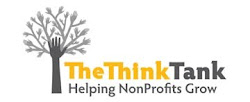The full report can be found here, but here are some of the big takeaways:
• Understand your limitations. The report found that although nonprofits do engage in efforts to influence public policy, their impact tends to be diminished by lack of resources (no surprise there). Budget constraints, limited staff time to devote to the cause, and lack of expertise are the most common concerns.
• Tell your story. Nonprofits should be directly involved in
 advocacy efforts by leveraging real-world stories and experiences in the lobbying process.
advocacy efforts by leveraging real-world stories and experiences in the lobbying process.• Reach out. Intermediary organizations should be utilized to engage members in mission-based advocacy and secure long-term funding streams.
• Educate, educate, educate. Foundations and their boards need to understand how advocacy can help achieve the organization’s mission; policy communities need to be educated about the impact of existing lobbying laws on nonprofit advocacy.
Have a question about your organization’s advocacy efforts? Leave us a comment – we’ll be happy to help.











